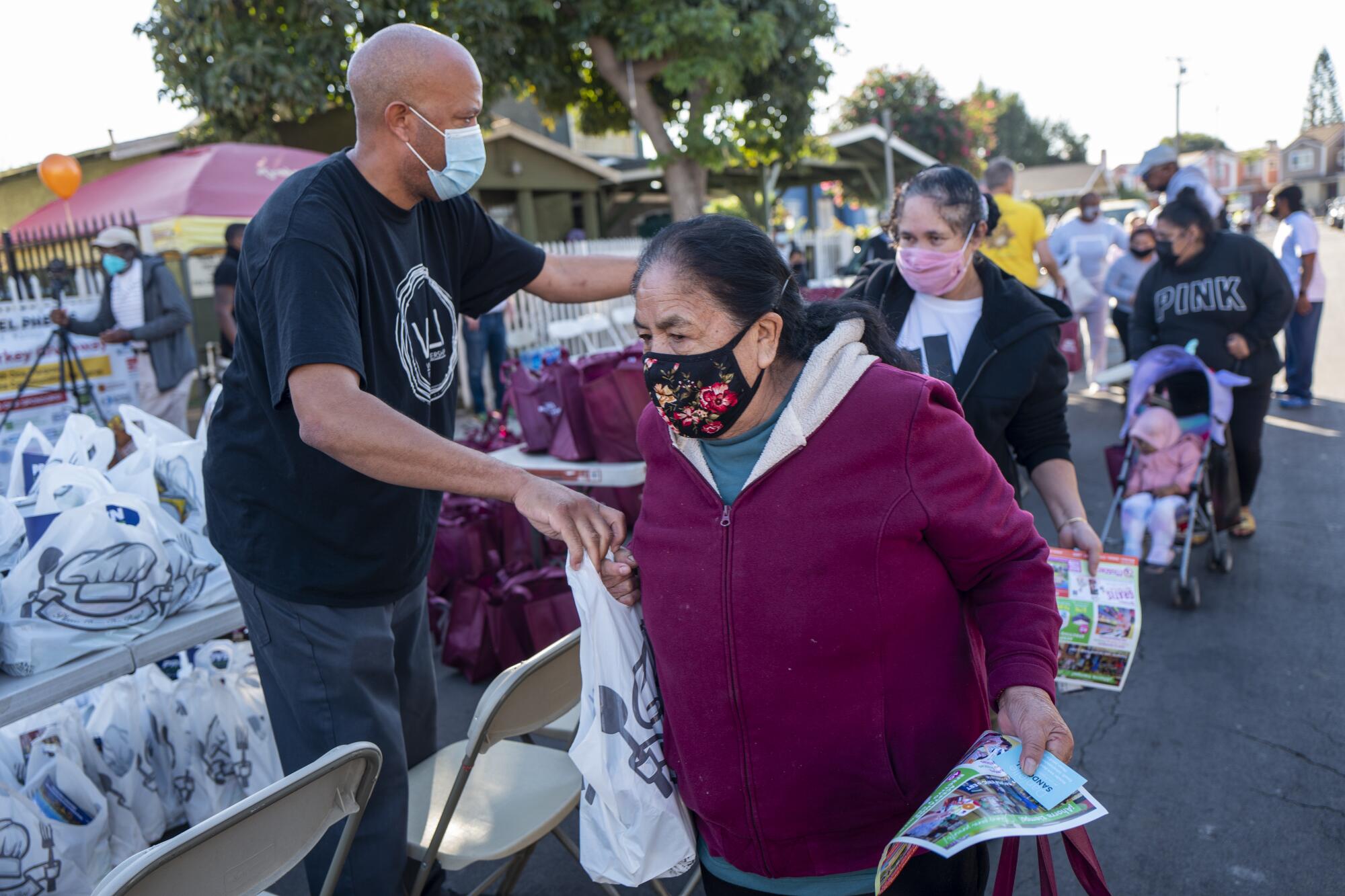
- Share via
Higher prices for groceries. Record gas costs. An ongoing pandemic that has meant reduced work hours for some and an inability to work for others. For many people this year, Thanksgiving dinner will be harder to put on the table.
Distribution by the Los Angeles Regional Food Bank has doubled since 2019, said the bank’s president, Michael Flood. The organization estimates 1 in 4 people in L.A. County experiences food insecurity.
The average cost nationwide of meat, poultry, fish and eggs is up 11.9% over the last year, according to the Bureau of Labor Statistics. The average cost of dairy products is up 1.8%.
Add to that the costs of living in L.A. County, which has some of the highest housing prices in the country. According to advocacy organization United Ways of California, a family of four in the county with two adults, a preschooler and a school-age child would need to make at least $95,112 a year to meet their basic needs.
“For many, there’s a tighter, limited budget already for food,” Flood said. People are seeing their money doesn’t go as far at the grocery store. Some are skipping things they would usually buy.
“Everything is sky high,” Wilmington resident Kenneth Gulley, 57, said after he picked up a box of staples — green beans, some fruit, cream of wheat, beef stew — at a local community center this week. “I barely make enough to get by.”
When the weekly food pantry at the Community Resource Center first opened in Wilmington in June, about 50 people came by. By September, organizers say, there were about 100 each week. On Tuesday, people started lining up outside the center an hour before food distribution began.
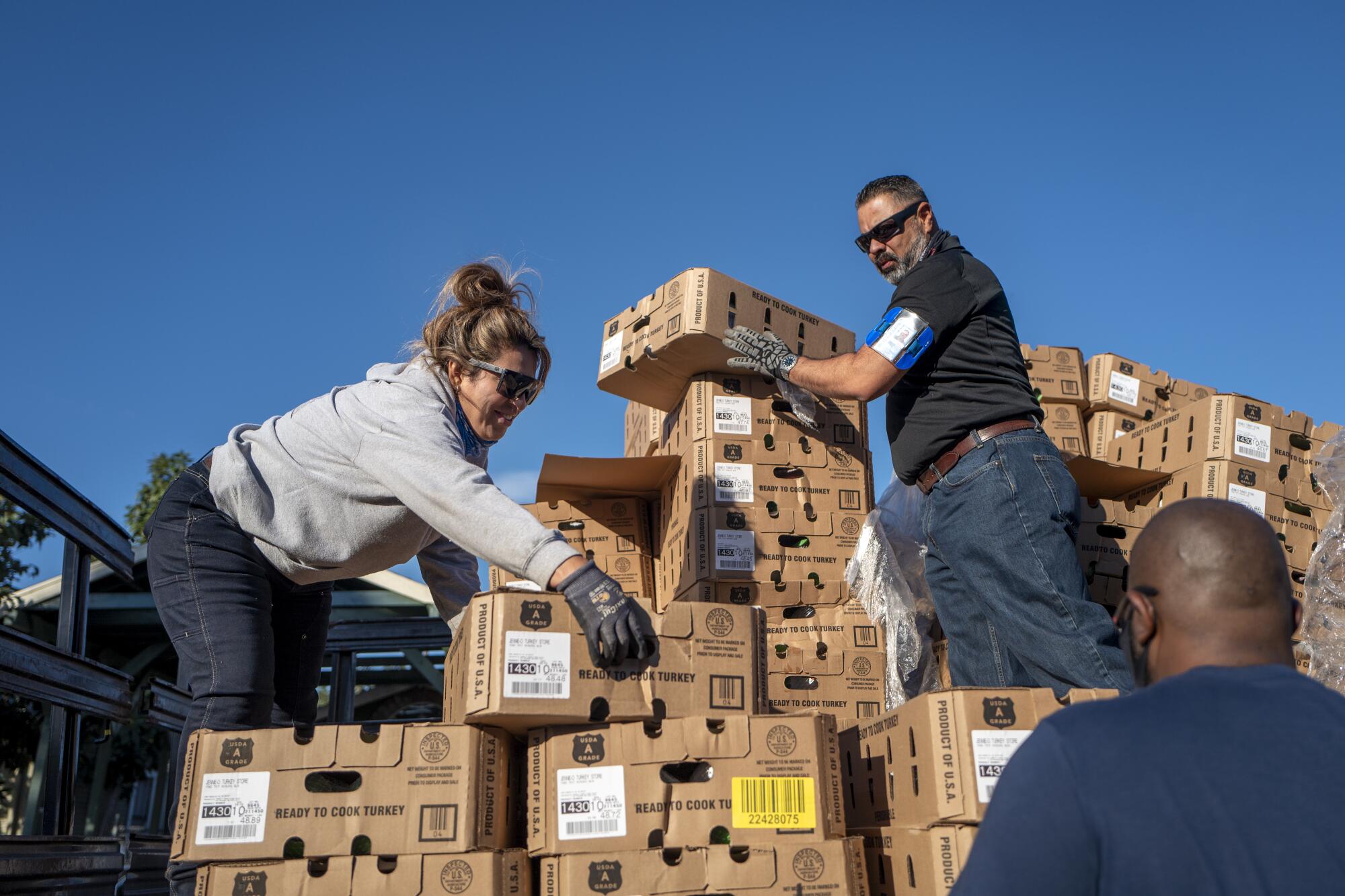
“The need is so great in this community,” said Candace Nafissi, the center’s manager. “People just need help.”
Food banks across the state have reported sustained higher demand — in some cases two to three times what it was before the pandemic, said Andrew Cheyne, director of government affairs at the California Assn. of Food Banks.
“Not only is there acute need still from the pandemic, but it’s going to last a long time,” he said. “We know from the Great Recession that it took a full decade for food insecurity to come back to pre-2008 levels.”
The Times visited some community centers and food banks around the L.A. area ahead of Thanksgiving.
“This turkey is really helping us. The meat has gone up, the milk has gone up. Most of the central things we eat have gone up very high.”
— Peggy Scott, 73
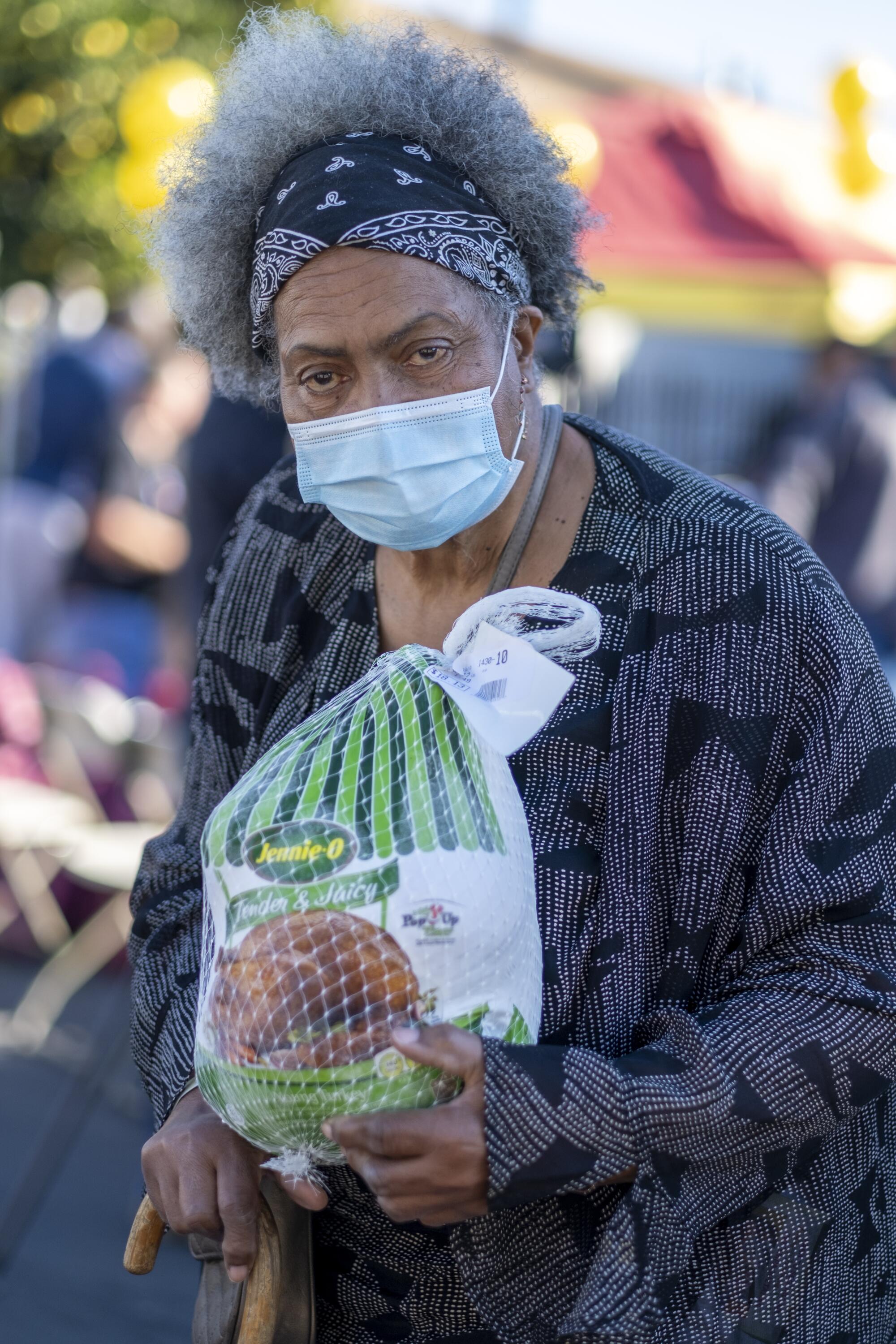
Two families will be sharing the turkey Peggy Scott picked up at a Thanksgiving giveaway in Watts: her family of four, her 94-year-old neighbor and the neighbor’s family.
At 8:30 a.m. Tuesday, a long line of people sat in folding chairs along the sidewalk as a large truck laden with food boxes backed up in front of the neighborhood pickup site. Distribution at the giveaway, run by the nonprofit Parents of Watts and Hensel Phelps, a Colorado construction and consulting company, was due to start at 9 a.m.
The first person in line had arrived at 6 a.m.
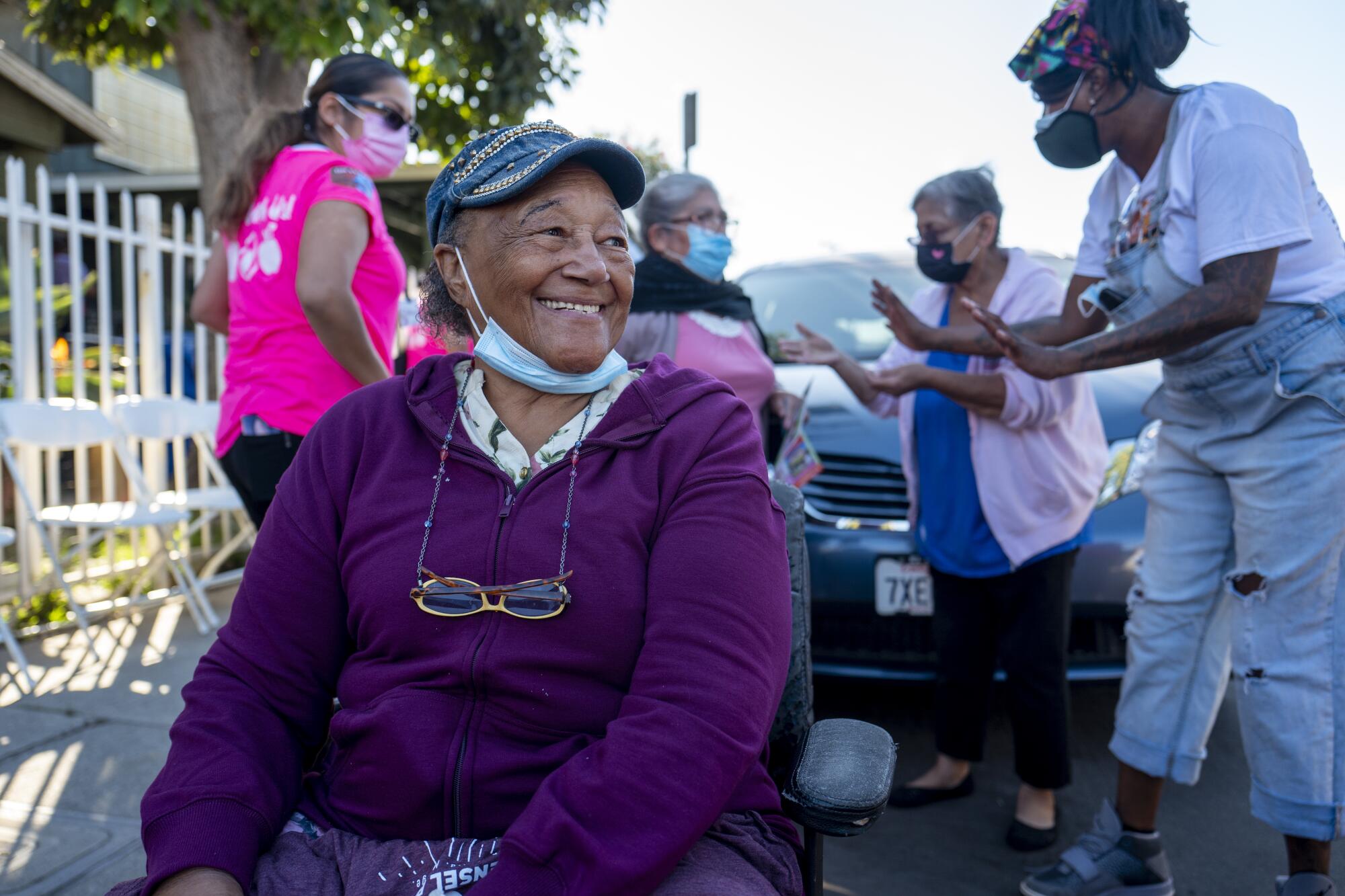
Alice Harris, 87, has led a turkey giveaway in the South L.A. neighborhood every Thanksgiving for 57 years. “The need is, most of the people are not working now,” said Harris, founder of Parents of Watts, a nonprofit focused on children.
As she watched volunteers pass out turkeys, she said she was “taking care of my kinfolk here.”
“I feel blessed to have that to be given to me.”
— Dorothy R. Brown on receiving a Thanksgiving meal
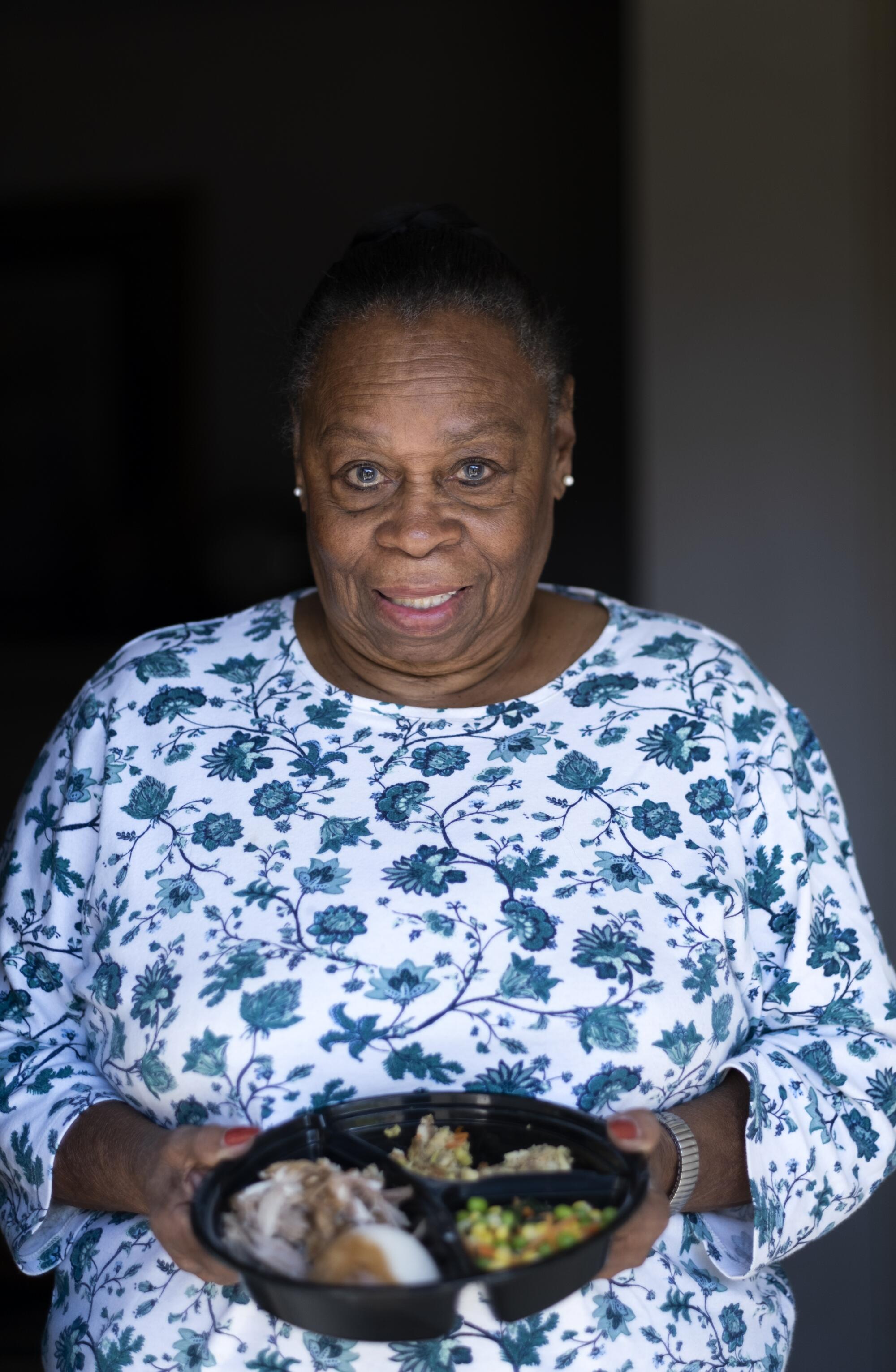
At the Pasadena Senior Center, Dorothy Brown sat in the lobby while a chef and volunteers prepared 250 Thanksgiving meals, including turkey, stuffing and vegetables, for delivery Wednesday to seniors.
“I do think that people believe everyone in Pasadena is wealthy,” said Akila Gibbs, the center’s executive director. She said 16% of seniors in Pasadena live below the poverty line.
Brown, 83, a regular volunteer at the center, said she wasn’t in dire straits but still needed help this year and welcomed receiving a Thanksgiving meal Wednesday. “I feel blessed to have that to be given to me.”
“It looks like a little box, but you get a lot.”
— Anna Velazquez on seeing box of breakfast porridge in her food box
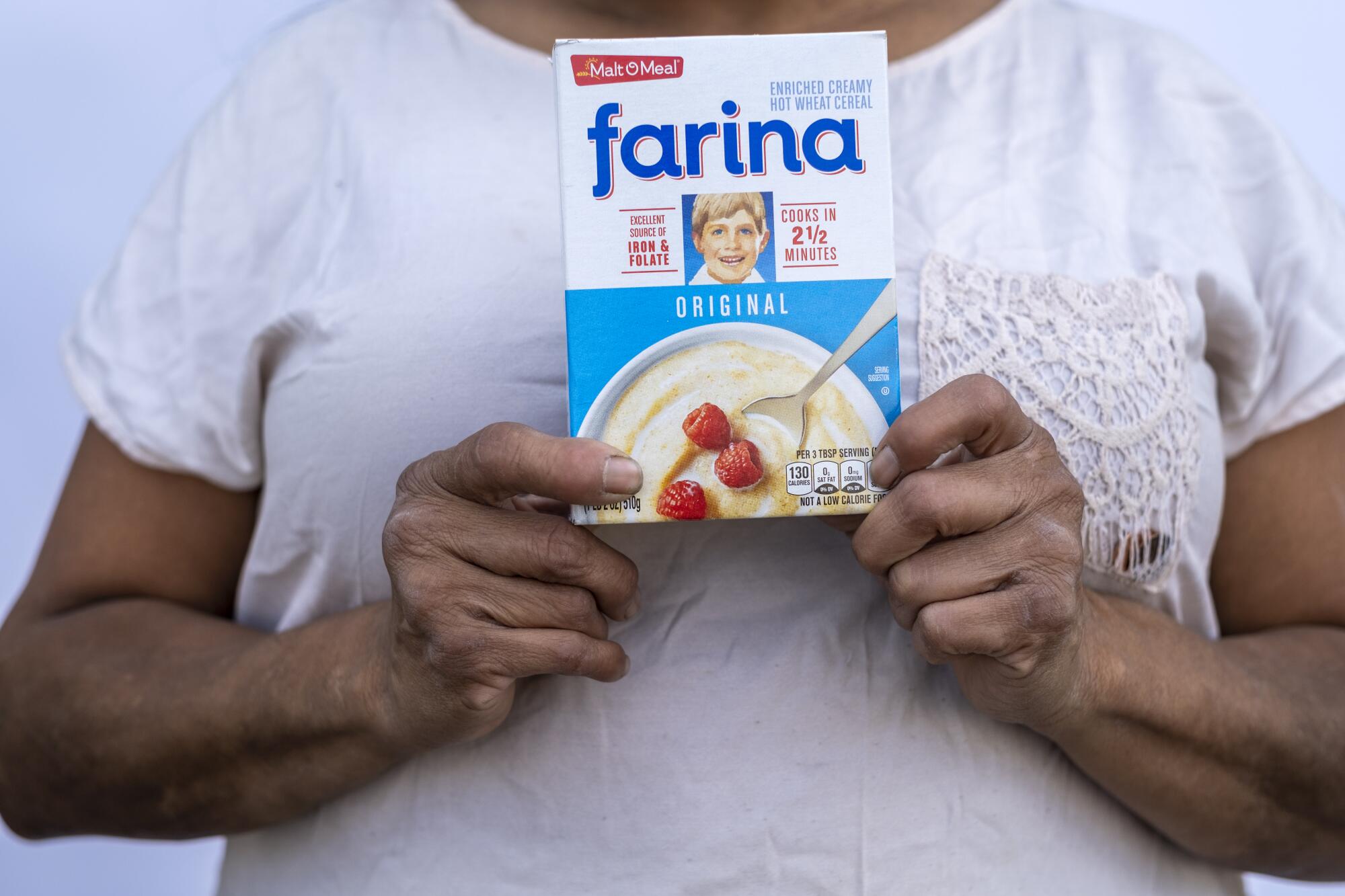
Cardboard boxes were piled on a table outside the Community Resource Center in Wilmington ahead of its weekly food pantry distribution. This week, there were canned goods, packaged beef stew and some breakfast porridge.
Anna Velazquez opened her box and was thrilled to see the porridge, which she said has gotten expensive. “It’s hard to go to the market. It’s $20 in the door, and you hardly get anything.”
“It’s been getting hard to purchase.”
— Rosario Moreno, who was receiving items from a food bank in Wilmington
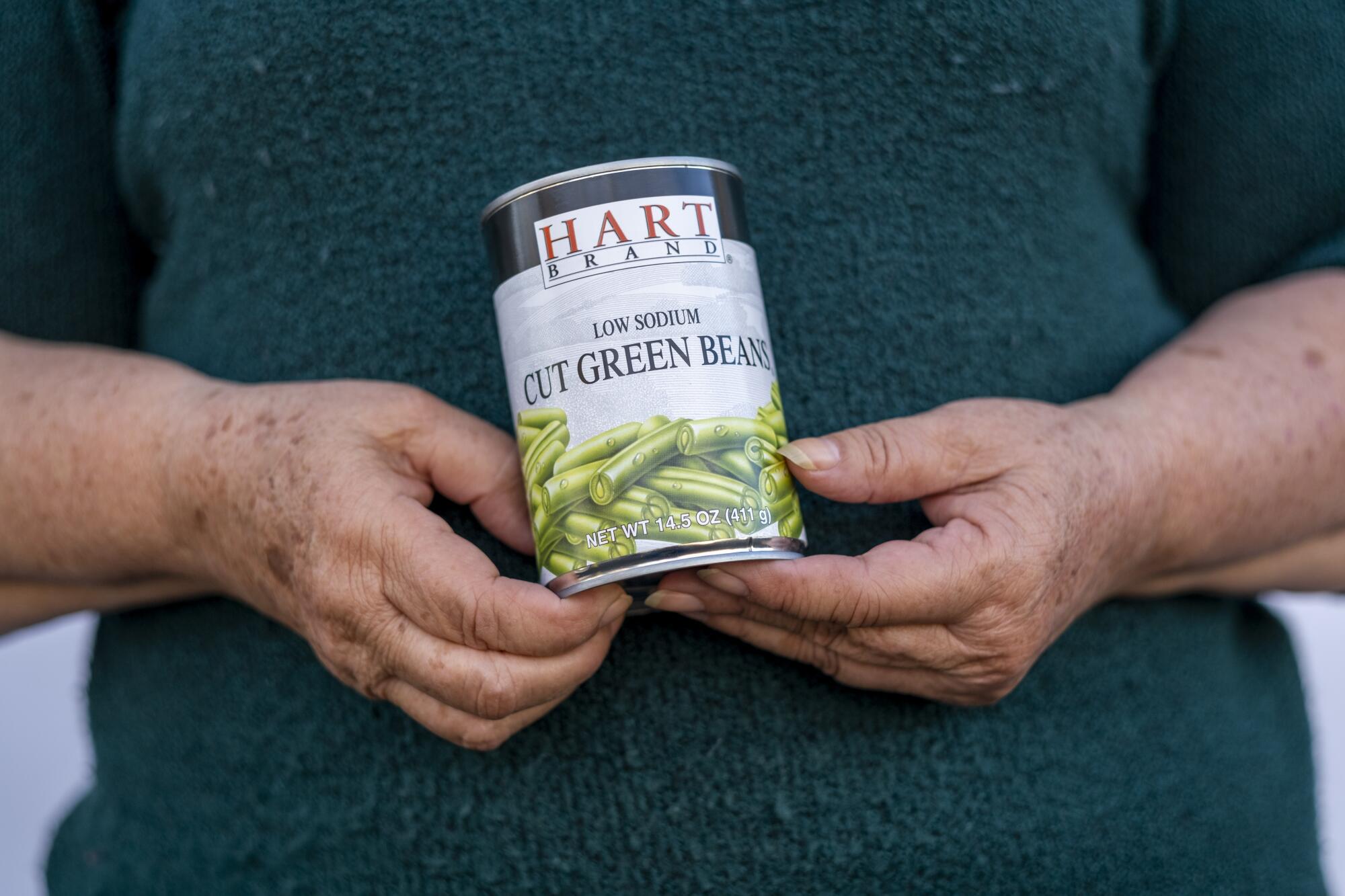
Rosario Moreno can’t afford to buy as much as she used to at the grocery store because most food staples have become more expensive. “Milk, vegetables, fruit and meat have all been going up in prices,” she said.
“I’m trying to give back to the community.”
— Augustin Alejo Jr., who plans to use some of the food from his box to cook for homeless people in his neighborhood
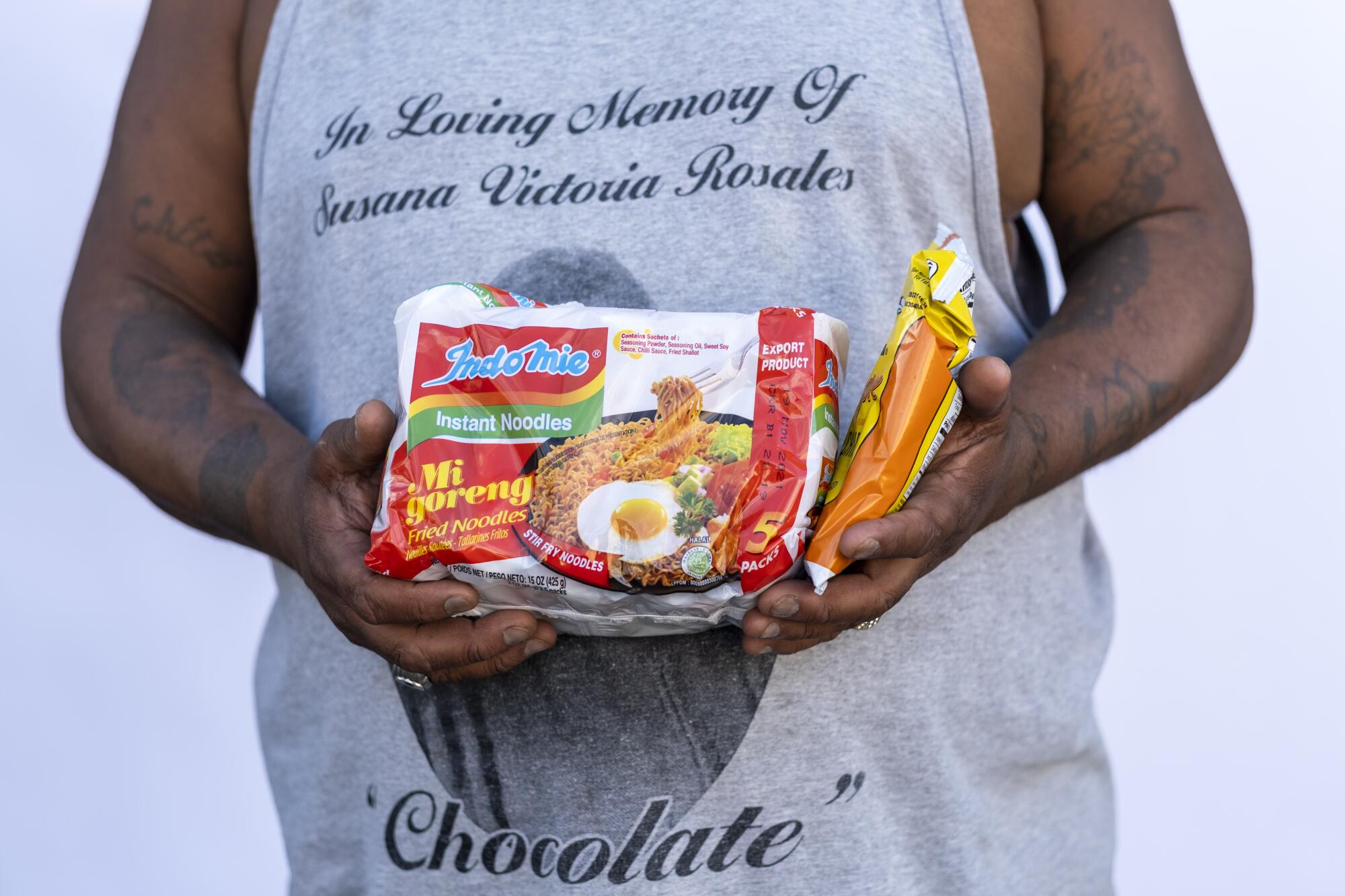
Augustin Alejo Jr. is paying it forward. He said he plans to give some of the food from the box he received at the Wilmington Community Resource Center to homeless people in his neighborhood.
He’s also struggling to pay high rent and now higher food prices.
“Lately it’s been going up and up and up.”
— Epimenio Pimental on food and grocery prices

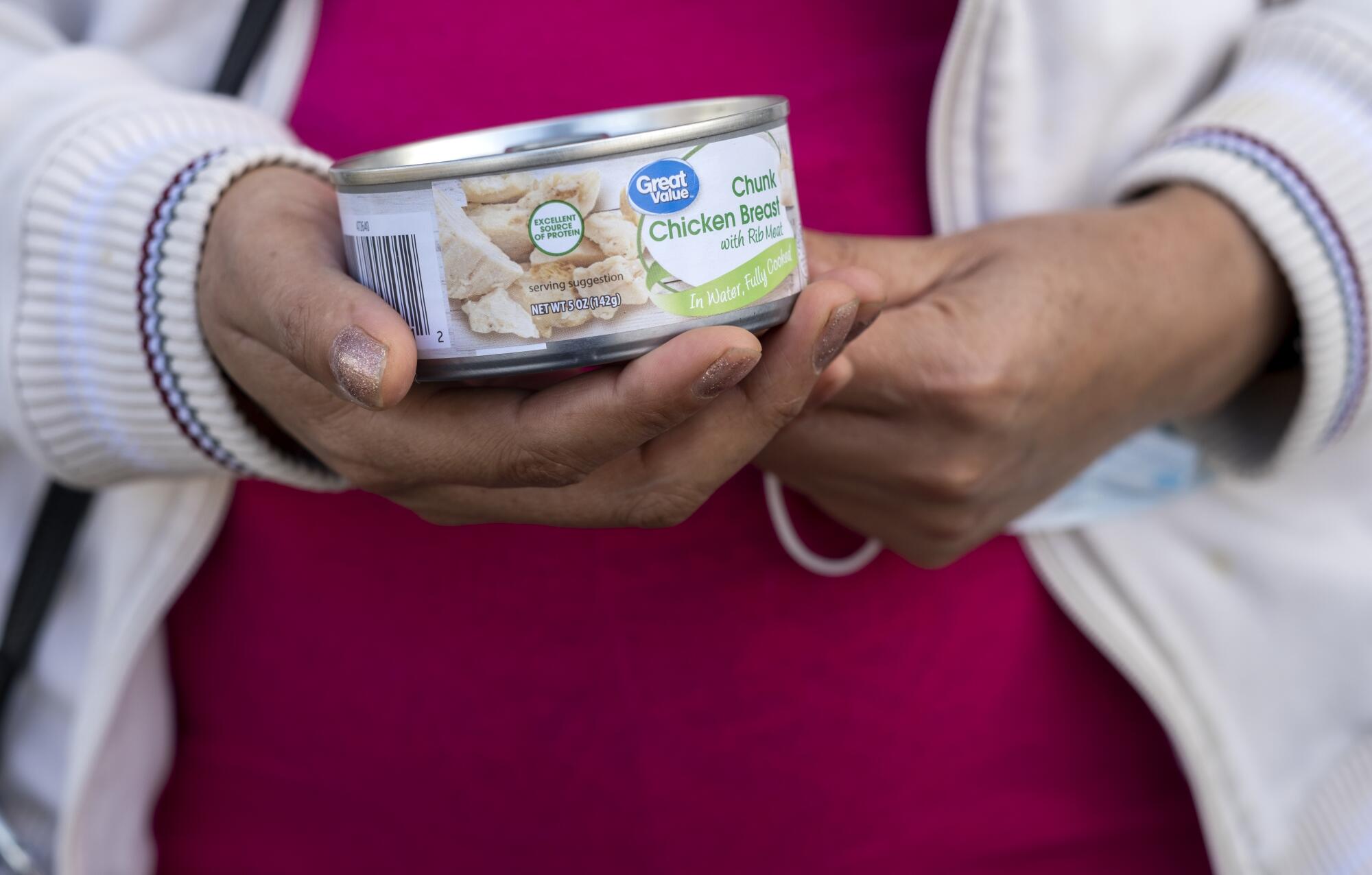
Maria Rivera said she limits what she buys at the store these days. The food she picked up at the Wilmington food pantry will supplement her regular grocery shopping.
“The price of milk, diapers, meat and eggs are all high now.”
— Arceli Siguenza, 39, on the price of staples her family needs most
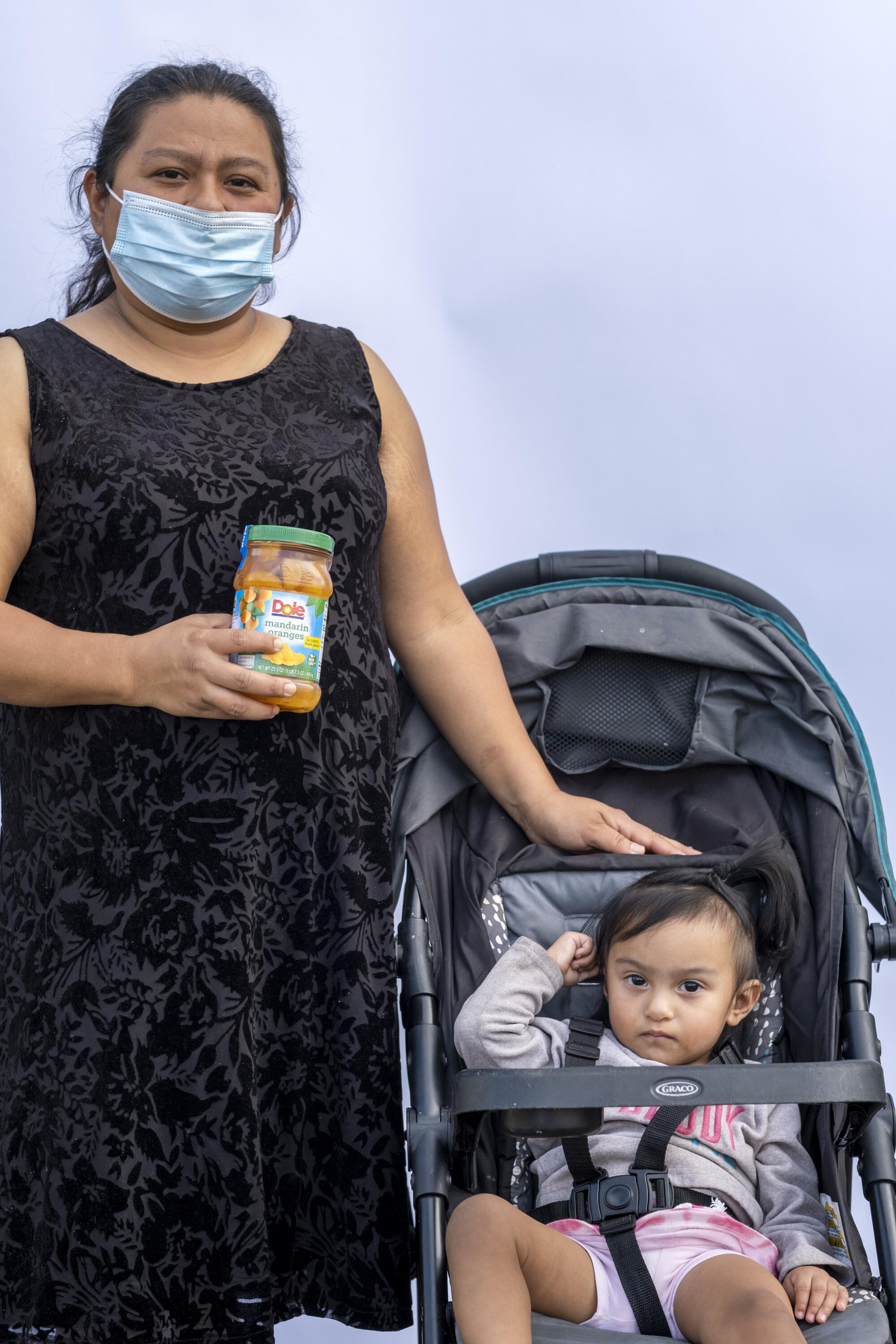
Arceli Siguenza came to the community resource center with her 1-year-old daughter, Johana. Siguenza has faced reduced hours at work — not the time for higher grocery bills. The sticker shock is affecting her household “a lot.”
“Everything is sky high now. I barely make enough to get by.”
— Kenneth Gulley
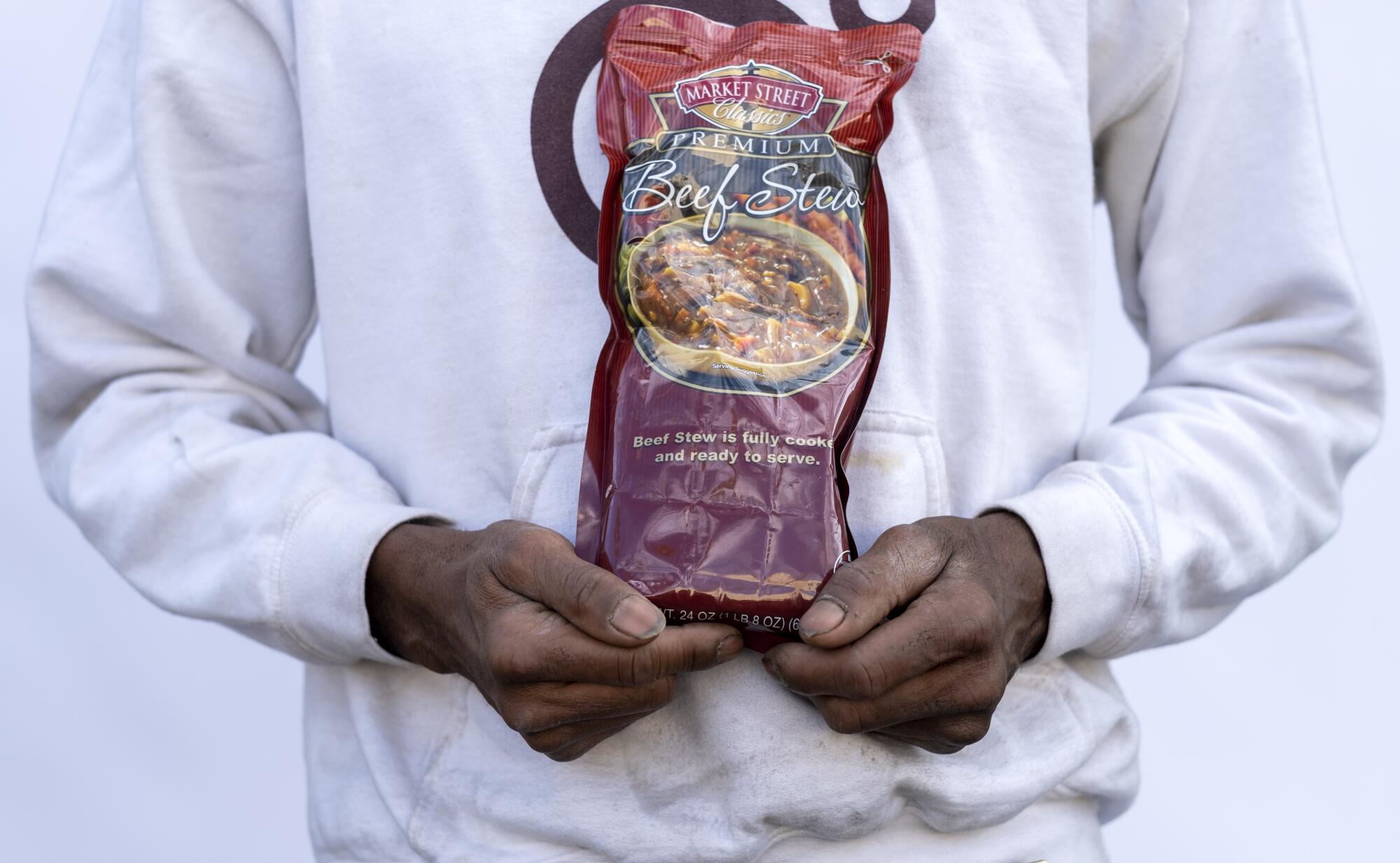
“To have a good breakfast now, you pay $17 or $18. I don’t remember it being that much before.”
— Frank van Joolen, a Pasadena resident
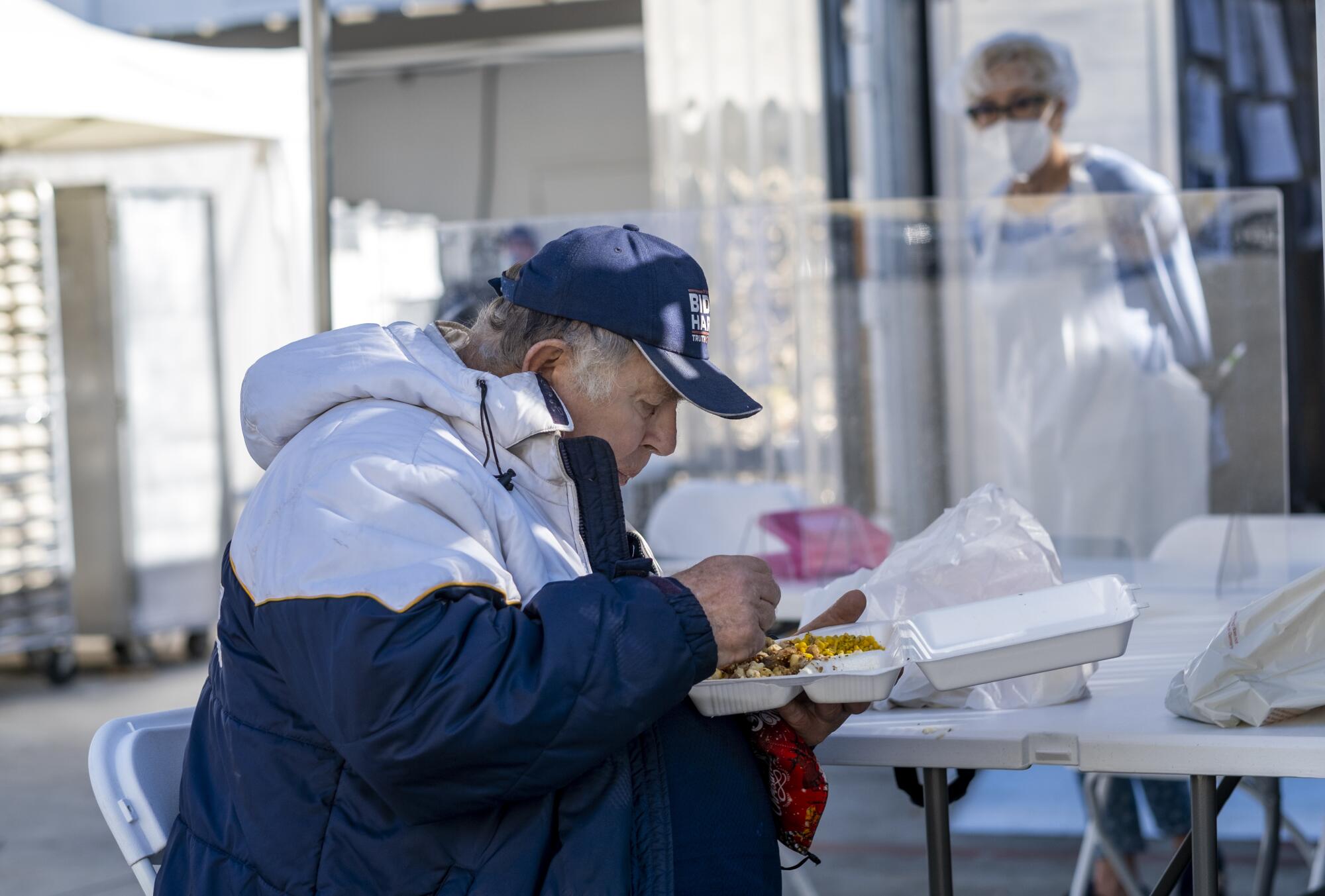
Frank van Joolen treats himself to a meal at Denny’s when he receives his Social Security checks. The retired convalescent home attendant has noticed the numbers on the check have gotten bigger.
Van Joolen is single and lives in a studio apartment with a microwave. Getting a Thanksgiving meal on Wednesday meant a lot to him, he said — it reminded him of his mother’s Thanksgiving dinners.
“I’m just one person with a cat. I feel like I’m OK. So far, so good.”
— Linda Ifkeider, senior living in Pasadena
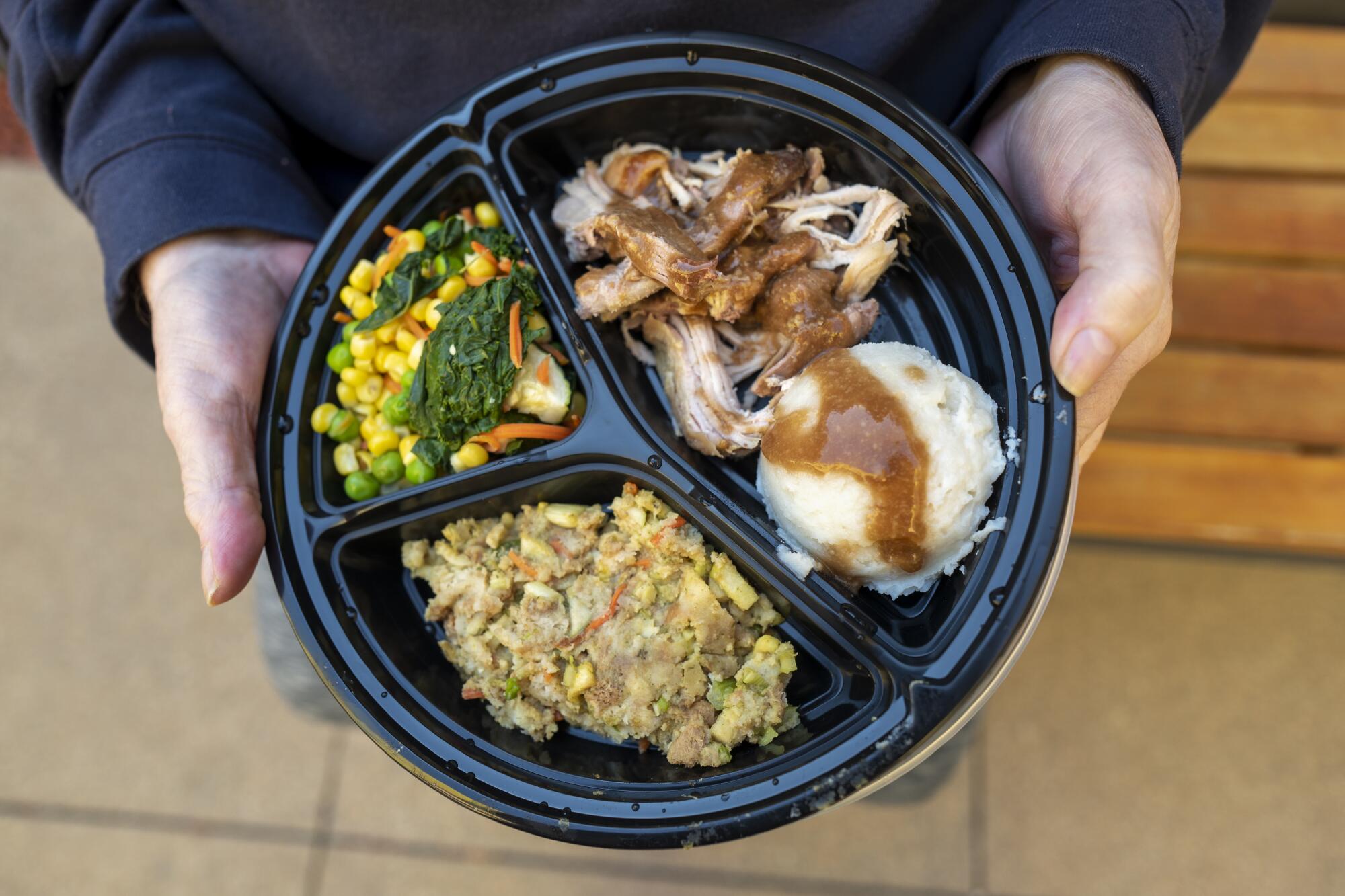
More to Read
Inside the business of entertainment
The Wide Shot brings you news, analysis and insights on everything from streaming wars to production — and what it all means for the future.
You may occasionally receive promotional content from the Los Angeles Times.












